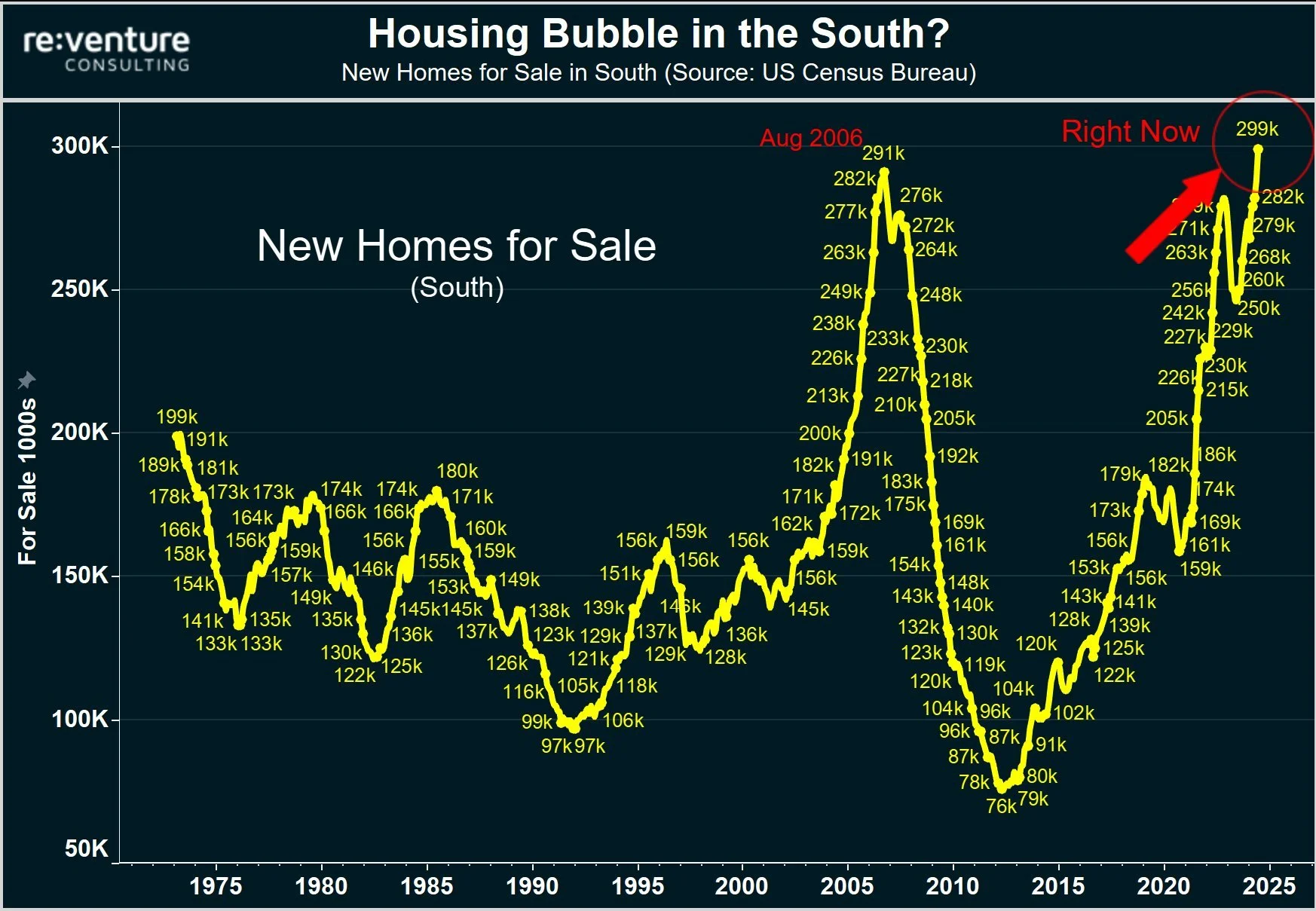'Massive' Housing Bubble About to Burst, Real Estate Expert Warns
The supply of new homes in Southern states of the U.S. has grown substantially potentially creating a bubble in the housing market, a real estate analyst suggested on Monday.
Home builders in the region responded to heightened demand for homes during COVID by escalating construction. Americans had migrated to the South during the pandemic in search of cheaper housing after stay-at-home orders to slow the spread of the coronavirus gave them flexibility over where they could work. That trend is slowing now, leading to waning demand for homes.
One analysts suggest that a drop in demand has left many homes in the market, creating a potential bubble.
"A massive housing bubble has developed, and is about to pop, in the South. The number of new homes for sale in the Southern Region (FL, GA, TN, TX, etc.) has spiked up to nearly 300,000," Nick Gerli, CEO of Reventure Consulting, said in a post on X, formerly Twitter. "This is the highest level of all-time. Even higher than the previous bubble peak in August 2006. Before the massive crash.".
Gerli went on to suggest that the COVID-inspired demand led to high prices that are now declining with the dropping demand for homes.
"I know this sounds very bearish on Southern real estate. But ultimately it's pretty simple. Home builders and investors rampantly speculated in this housing market the last 3-4 years. And prices went far above what locals can afford. And created a bubble," he said on X. "Now that bubble is - slowly - popping. And it could start to pop pretty fast if a Recession is thrown into the mix."
Some housing economists are suggesting that the housing market may be normalizing after the volatility witnessed during the COVID when a combination of cheap mortgage rates and lower prices in the south attracted buyers to purchase homes.
"In our data, it is clear that the southern markets are the most normalized in Austin and San Antonio, for example, there are more homes now for sale than there were before the pandemic," Danielle Hale, chief economist at Realtor.com, told Newsweek. "So there is greater availability in the South and we are seeing that affect pricing."
The median listing price in Austin, for example, was down 3 percent compared to a year ago, she added.
The U.S. still needed to build enough homes and the South has done a better job than other parts of the country in supplying new homes to the market, Hale said.
"It has also attracted a lot of households from other regions of the country because homes there remain affordable," she told Newsweek. "My expectation is that it will continue to draw in people and that its relative affordability will continue to be an advantage."
Hale added: "So I don't think we're going to see a crash, but it is the case that inventory of homes for sale are less scarce in the South now than they have been over the past few years."
Compared to the housing crash seen in the 2008 financial crisis, homeowners now boast significant equity in their homes, including in certain parts of the South.
"Historically, Florida, for example, has a high share of homeowners that own their home outright," Hale said. "It's the case that nationwide there's a lot more equity in housing right now and that does make it less likely that we'll see the kind of price declines that lead to trouble that we saw in the mid-2000s."
Gerli acknowledged that other regions of the U.S. were seeing fewer challenges than the South.
"We won't see a housing crash in the Northeast and Midwest. Home building there is at very low levels. As is speculative inventory activity," he pointed out on X. "Prices in these regions are also less overvalued. And inventory is much lower."
He added: "Perhaps there's a housing correction eventually in Northeast/Midwest. But for now - these markets are holding strong."

